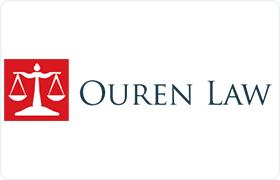 Grandview RICO Act Lawyers, Washington
Grandview RICO Act Lawyers, Washington
Sponsored Law Firm
-
 x
x

Click For More Info:
-
Ouren Law
4101 South Union Street Kennewick, WA 99337» view mapCriminal Defense Dedicated. Straightforward. Tough.
With more than a decade of experience, Attorney Ouren has helped many clients achieve successful results in their family law and criminal law matters.
800-971-6601
Not enough matches for Grandview RICO Act lawyer.
Below are all Grandview Criminal lawyers.
Lawyers
1-5 of 5 matches
Estate Planning, Criminal, Administrative Law, Bankruptcy
International Tax, Estate Planning, Criminal, Credit & Debt
International Tax, Estate Planning, Criminal, Credit & Debt, Wills



 Kimberly Ouren Kennewick, WA
Kimberly Ouren Kennewick, WA Practice AreasExpertise
Practice AreasExpertise